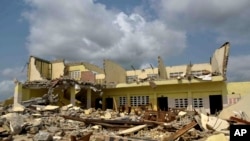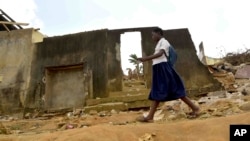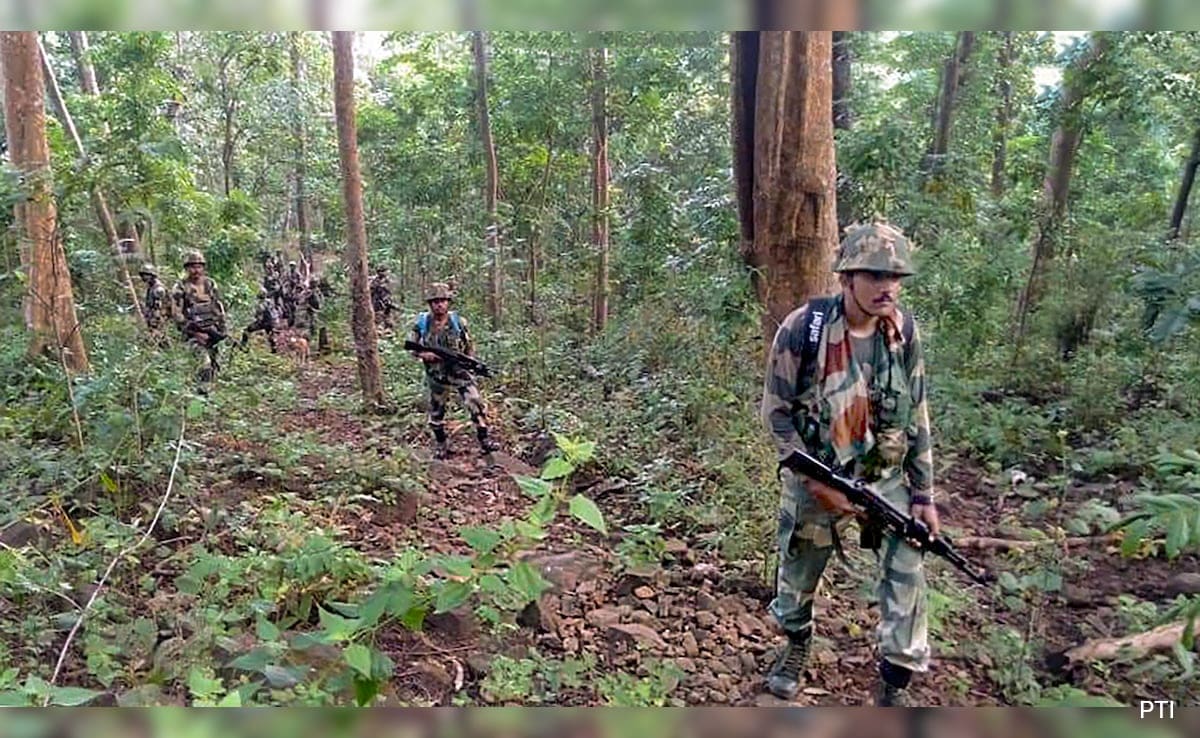As bulldozers rolled into her neighborhood in Abidjan, Ivory Coast’s fast-growing economic hub, Mrs. Tour rushed to collect what she could. Her three children joined her, stuffing clothes and other items they could grab into plastic bags before their home was reduced to rubble as armed security forces looked on.
Toure’s house was one of hundreds targeted in February in a target of destruction in less developed areas of Abidjan.
The government says it’s a public health concern because the impoverished region – a port city of 6.3 million people along the lagoon on West Africa’s southern coast – suffers from deadly flooding during the rainy season. More than 300 people have died since 2005, and officials say the flooding has become a breeding ground for disease.
“My children and I are sleeping in the sun now,” said Touré, 50. “We don’t know where to go.”
The demolition of low-income neighborhoods is nothing new in Abidjan, where rapid urbanization has led to a population boom and a housing shortage, with nearly one in five Ivorians living in the city. This is a challenge for many parts of Africa, with economic woes forcing more people into cities in search of better opportunities, putting pressure on already overstretched infrastructure.
However, Abidjan’s latest demolitions, mainly in the poor suburbs of the Gesco and Sebroko areas, are among the largest in years, affecting an estimated hundreds of thousands of residents since they began in late January. Evicted families and rights groups say this time the evictions were carried out without prior notice or compensation.
Analysts say many African governments are struggling to cope with exploding urban populations and meet growing infrastructure needs. Chimezie Anajama, a policy researcher and founder of the development nonprofit Blooming Social Pen, said few governments can solve development problems.
“African governments must make a strong commitment to come up with creative solutions to address the infrastructure gaps in African cities,” Anajama said.
Local authorities defended the demolitions and said they had begun relocating homeless families to safer areas.
About 35% of Ivorians are poor. Water shortage is a daily scourge and many people are forced to fetch water from streams to meet their daily needs. The country must also contend with other challenges, such as jihadist attacks that have spread to coastal countries in West Africa, including Côte d’Ivoire.
“Our goal is to provide these people with a decent … living environment,” Ivory Coast’s Communications Minister Amadou Coulibaly said of the demolitions. He claimed in February that some people evicted in communities such as Boribana were being resettled in at least 1,000 government-built houses.
However, many families remain homeless and stranded in several parts of the city.
The League for Human Rights of Côte d’Ivoire said in a statement that the demolitions were “carried out in a brutal manner… with catastrophic consequences for many already vulnerable families”. It urged authorities to halt the campaign.
Those affected by the demolition include nearly 2,000 students at Cha Hélène College in the Yopougon neighborhood, which was reduced to rubble in February.
The school’s founder, Sévérin Okpo Abe, said neither the Ivorian Ministry of Construction nor the National Education Ministry informed the school that it would be demolished. The children were eventually admitted to other nearby schools.
Most of the evicted residents who are not sleeping rough have either moved to other areas of Côte d’Ivoire or are living with residents elsewhere.
“We are already homeless in our own country,” said Aimée Ouédraogo, a spokesperson for women affected by forced evictions.
She added that evictions have broken up families and scattered homeless people across the city. “We no longer have a home, we no longer have our family, we no longer have our children around us.”
Amid anger and protests by deportees, Ivorian President Alassane Ouattara asked local authorities in Abidjan to “show solidarity… to preserve cohesion and social peace”.
However, city officials said the demolition activities were part of a wider project to regenerate and provide basic amenities in the area. They said the evicted people would be rented the land for up to 25 years at a monthly rent of about $16.
On April 8, the government announced that it would begin compensating affected families, with each household receiving approximately US$405 in relocation support. In a country where the minimum wage is about $121 a month, some believe it’s not enough to cover rising housing costs.
“All displaced people will receive the support they need to relocate,” said Belmond Dogo, the minister responsible for poverty alleviation.
Yopougon’s municipal government, which is made up of mostly working-class residents, also announced plans to help those affected.
But many like Touré say they feel helpless watching bulldozers rampage through their neighborhoods.
“I have no one and no money to buy a house in Abidjan,” said the mother of three, wondering what to do next. “I can not do it.”
Follow us on Google news ,Twitter , and Join Whatsapp Group of thelocalreport.in


















“Cheerleaders should start dancing only when…”: KKR star’s cheeky comment on the new ‘trend’ of free-flowing boundaries this IPL cricket news